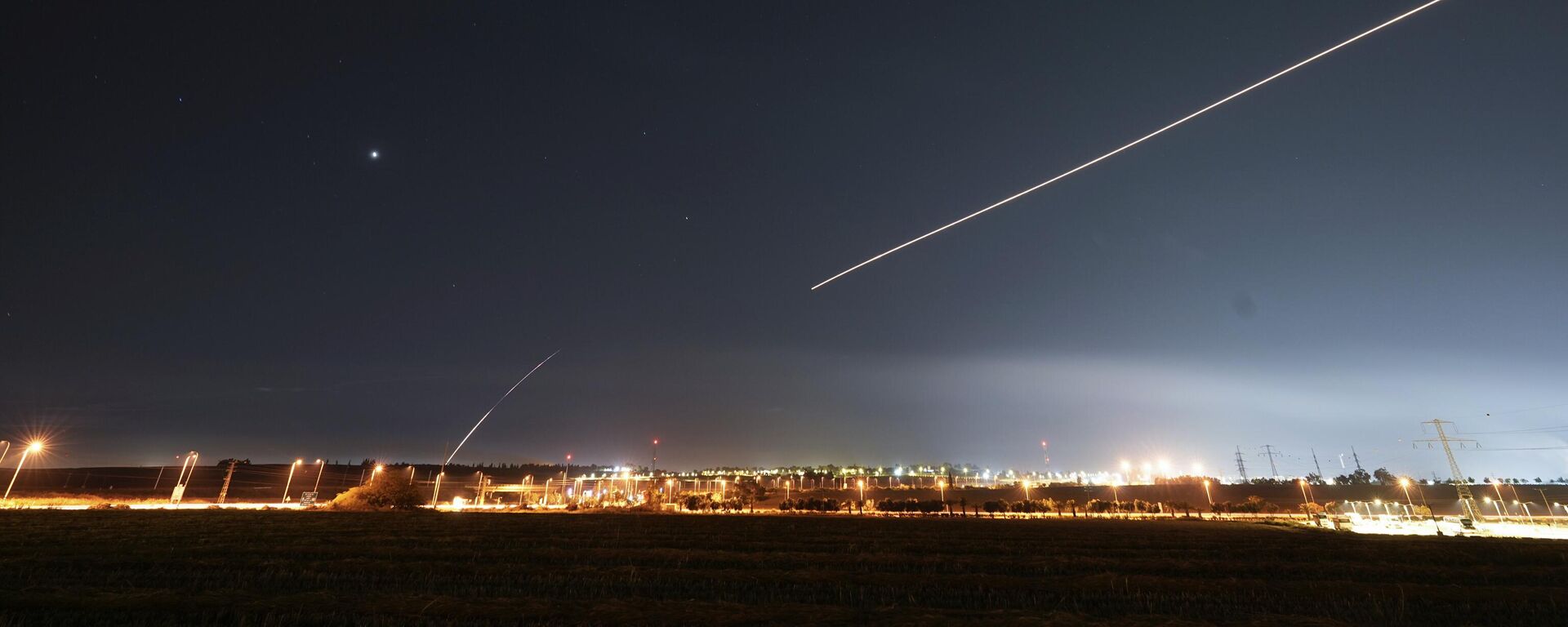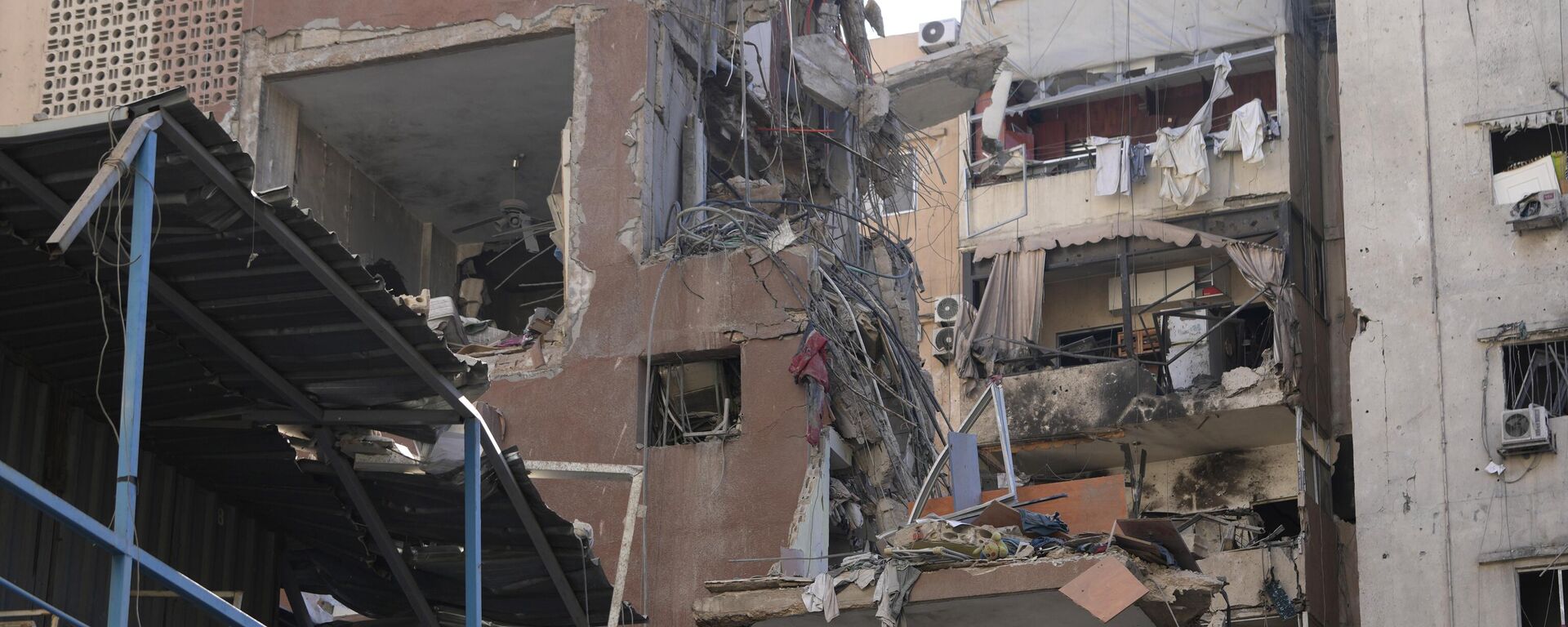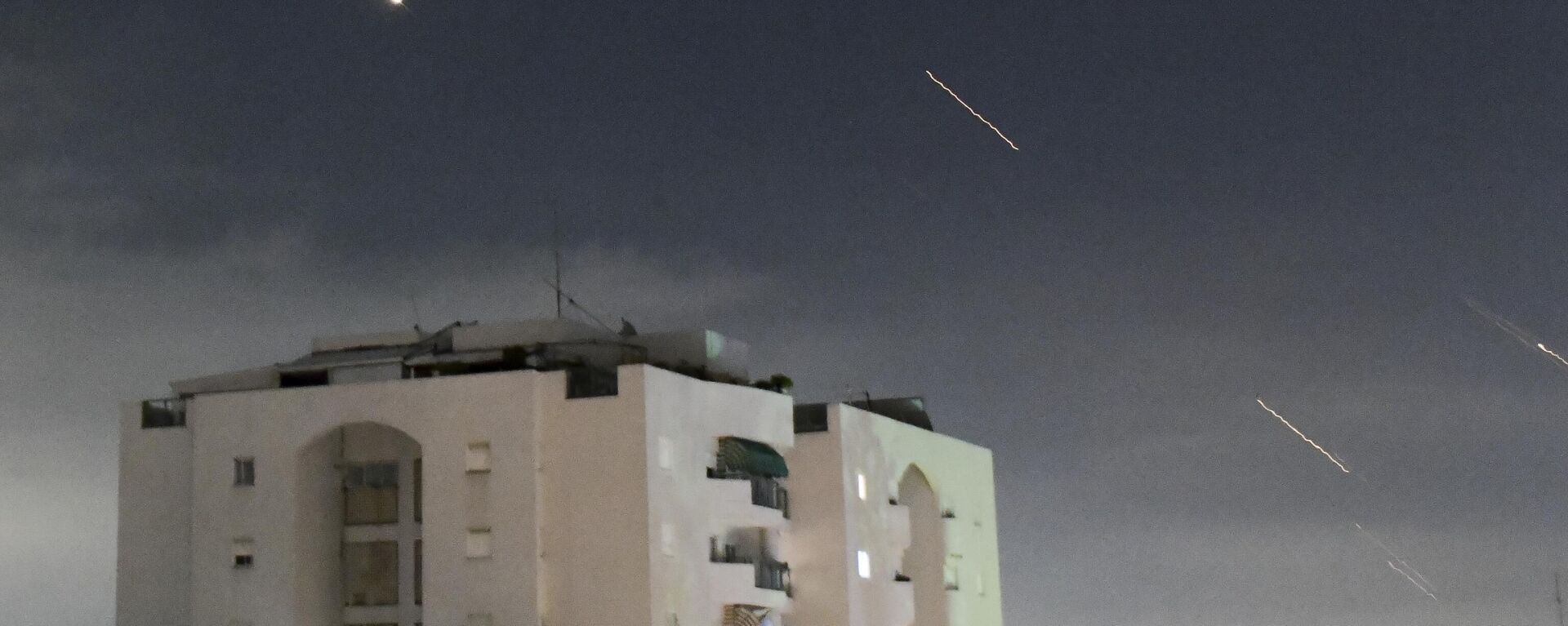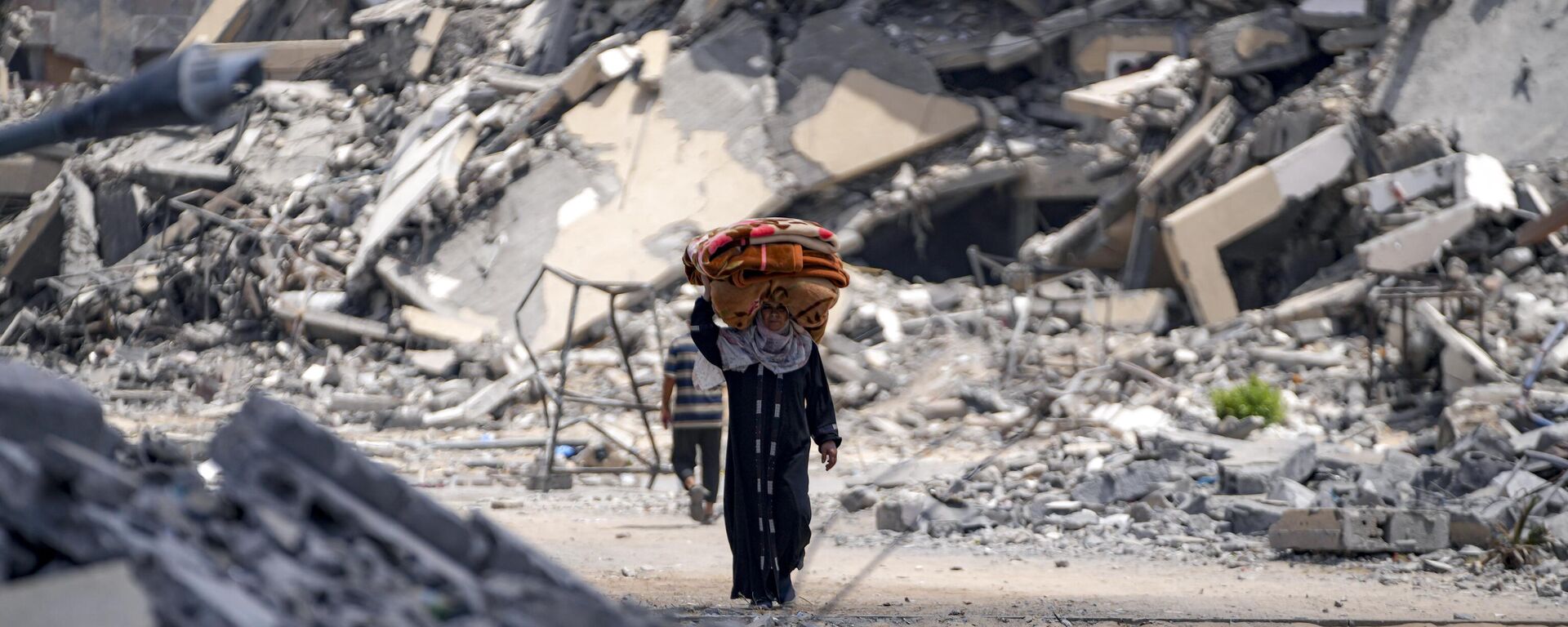Hezbollah Could End Normal Life in Israel, Drive Israelis ‘Underground’ in Any Major Escalation
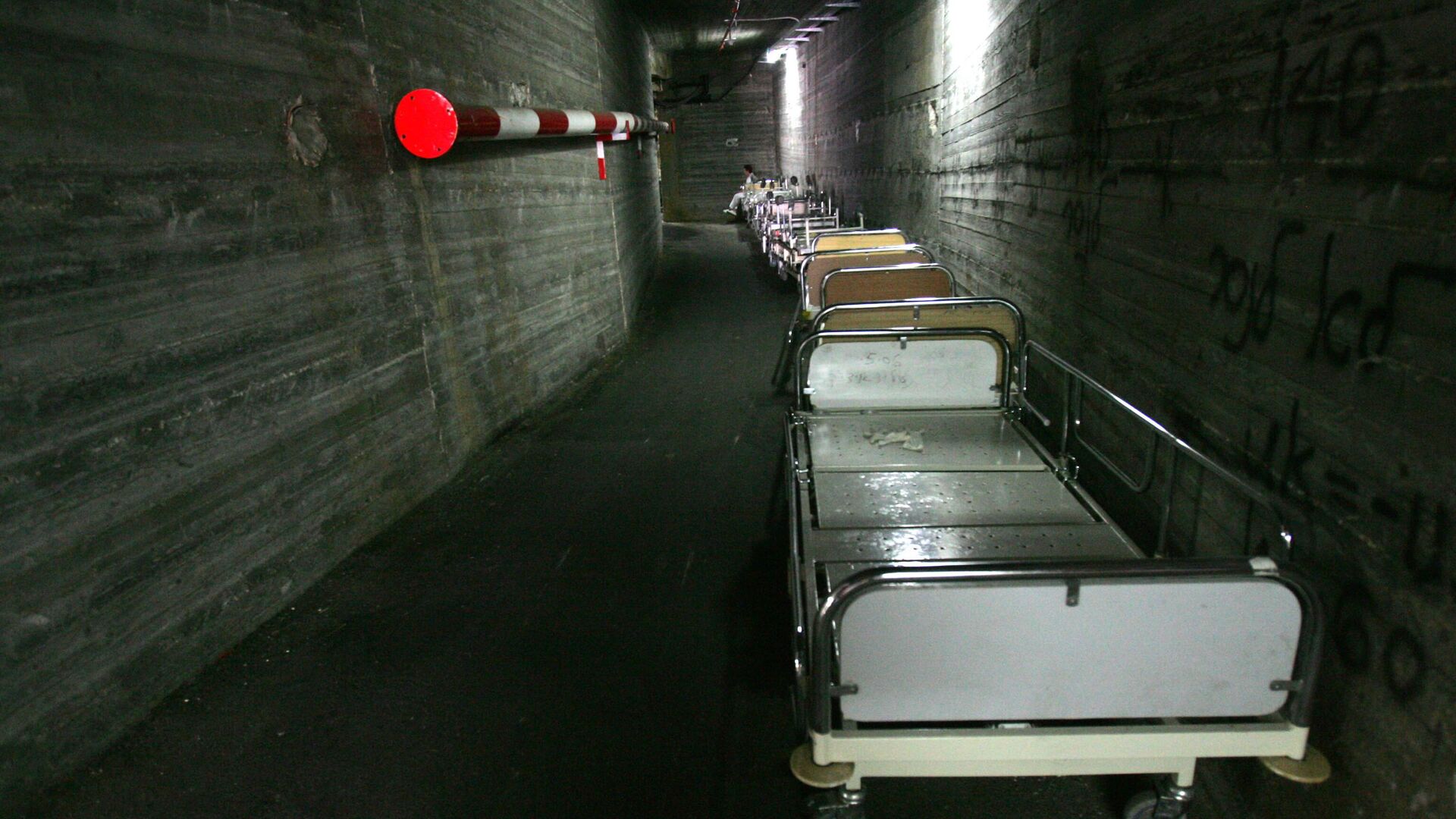
© AP Photo / MUHAMMED MUHEISEN
Subscribe
Tensions between Hezbollah and Israel have boiled over amid a series of increasingly powerful back-and-forth attacks. But neither side, nor their allies truly want a full-scale war, since it would end any semblance of normal life in Israel, sink Tehran’s hopes on the diplomatic front, and stretch US resources to a breaking point, observers say.
Major airlines began canceling and diverting flights to and from Beirut and Tel Aviv over the weekend amid fears of all all-out war between Lebanon’s Hezbollah and Israel. The cancellations came in the wake of large-scale preemptive aerial attacks by as many as 100 Israeli warplanes against suspected Hezbollah targets across southern Lebanon, with the militia launching a barrage of hundreds of drones and rockets at 5 am Sunday morning in retaliation to Tel Aviv’s assassination of senior Hezbollah commander Fuad Shukr in Beirut last month.
Smaller follow-up targeted back-and-forth air-drone and rocket attacks have been reported, with scores Hezbollah fighters, Israeli soldiers and civilians killed or injured in the latest escalation.
In a televised speech Sunday, Hezbollah leader Hassan Nasrallah cited the militia’s successful targeting of Israeli military and intelligence sites. Nasrallah said the delay in the militia’s response to Shukr’s July 30 murder was meant to provide time for the Gaza ceasefire talks to bear fruit – a chance he said was squandered by Prime Minister Netanyahu and the United States.
“Our goal…is to end the aggression on Gaza, so we gave it [the ceasefire process, ed.] enough of an opportunity, but after all this time, it is clear that Netanyahu is putting in new conditions and the Americans are working with him and this is all a waste of time, so there was no reason to delay any longer,” Nasrallah said.
No One Wants a Full-Scale War
“Regional and international actors indirectly involved in this war such as the US and Iran have no intention to directly be involved,” American University of Beirut Issam Fares Institute for Public Policy international affairs section coordinator Yeghia Tashjian told Sputnik, commenting on the escalating tensions between Hezbollah and Israeli.
Pointing to the factors of the upcoming US presidential election, plus Iran’s attempts at diplomatic rapprochement with Western countries following July’s elections, Tashjian said he believes the recent back-and-forth strikes, serious as they are, remain “managed clashes,” signaling that neither side is “ready to shift the current status into a major war.”
Costs for Israel, Costs on US
There are other reasons Israel and the US in particular don’t truly want a full scale conflict, says Furkan Halit Yolcu, an academic and Middle East Institute faculty member at Turkiye’s Sakarya University.
Hezbollah, unlike Hamas, isn’t “a small-scale non-state actor,” but a force to be reckoned with approaching national armies in terms of its ground strength, and has missile and air defense power that can do great “harm and hurt” to any army attacking it, the observer told Sputnik.
Hezbollah has the “will and the ground resources it needs [to] have a very, very, very large impact on Israeli soil,” Yolcu warned, noting that ordinary Israelis may literally be driven into underground bomb shelters their government has prepared for them, and see their day-to-day lives disrupted completely thanks to Hezbollah’s ability to saturate Israeli air and missile defenses.
“The main muscle, the military power that Hezbollah threatens Israel with is the ballistic missiles that they have. Because Israel has a very, very complex multi layered air defense system that is capable of taking out a cruise missiles, ballistic missiles, short distance missiles, long distance missiles. They have a multi-layered system that protects them even from the smallest drone to the highly developed cruise and ballistic missiles that can come from even 2,000 km beyond their soil,” the observer explained.
But “there's a concept called ‘saturation’,” which states “that that you have a certain number of launchers on the ground that are waiting to defend your airspace. Let's say Israel has an X amount of launchers ready deployed and active, seeking missiles coming from anywhere. If Israel is faced with an ‘X plus one’ number of missiles coming towards it, that guarantees that at least one missile is going to hit the target. And when we think about it, the air defense ratio, the defense rate that the Israeli air defense can annihilate targets at is between 84%…[and] 90%. So a large scale ballistic missile attack, a large scale drone attack can absolutely hurt Israeli city life and day-to-day operations in terms of trade, in terms of bureaucracy, diplomacy, in terms of education, tourism, whatever you can imagine,” Yolcu added.
Even recent attacks by Hamas on Israel have already demonstrated “that Israel is not protected 100%,” according to the observer, and if the conflict escalates into a true shooting war with Hezbollah, things will get much worse for Tel Aviv.
As for the US, it has its own problems, with the deployment of additional resources to the region costing an arm and a leg. “It’s really, really costly to have that much military power just stationed there to protect Israel at all costs,” Yolcu stressed.
“There are 10,000 US soldiers in Qatar and another 7,000 in Bahrain, another 6,000 in Kuwait. So it's not like the military footprint of United States and Pentagon is small in the Middle East. The reason that they are increasing it is because of the anxiety about Iran's inclusion to this conflict and a state-to-state conflict between two large military powers in the region. This is bringing up a cost to the United States - having that much of a large footprint in the Middle East in terms of the military power, because the military footprint is the most expensive one you can have in terms of reflected power in other territories than yours, because you have to keep up those forces ready; you have to maintain the facilities, maintain the vehicles, maintain the aircraft, maintain the ships,” the academic stressed.
“There's a cost part to it, which United States I'm sure are considering, about what to do about how to de-escalate the whole situation as well, but I think they're more afraid than Iran. If any such movement comes from Iran’s side, I think the military backup and the decision to not replace but both keep both [groups of][ military ships in the region…at the point one third of the total US maritime power is either in the Mediterranean or the Middle East zone,” Yolcu said.

